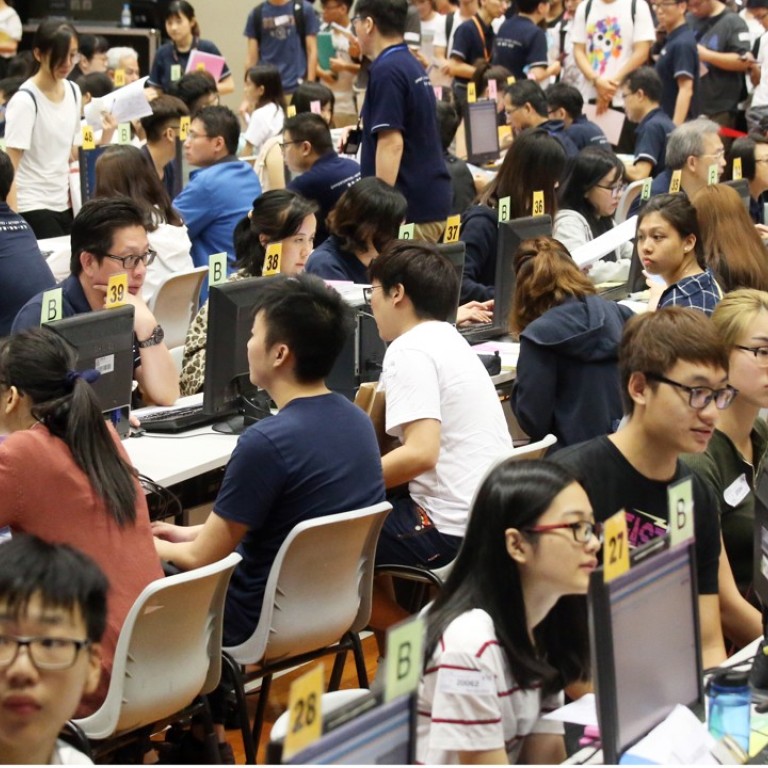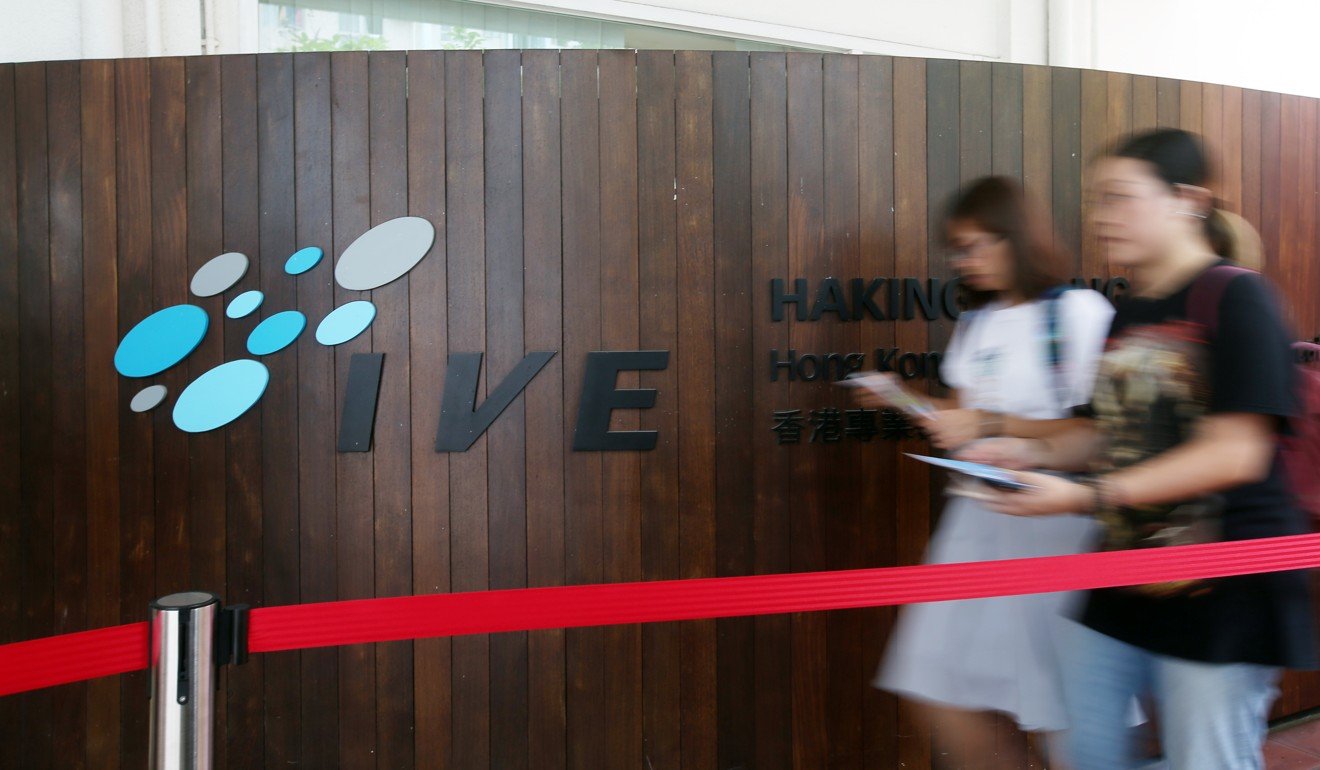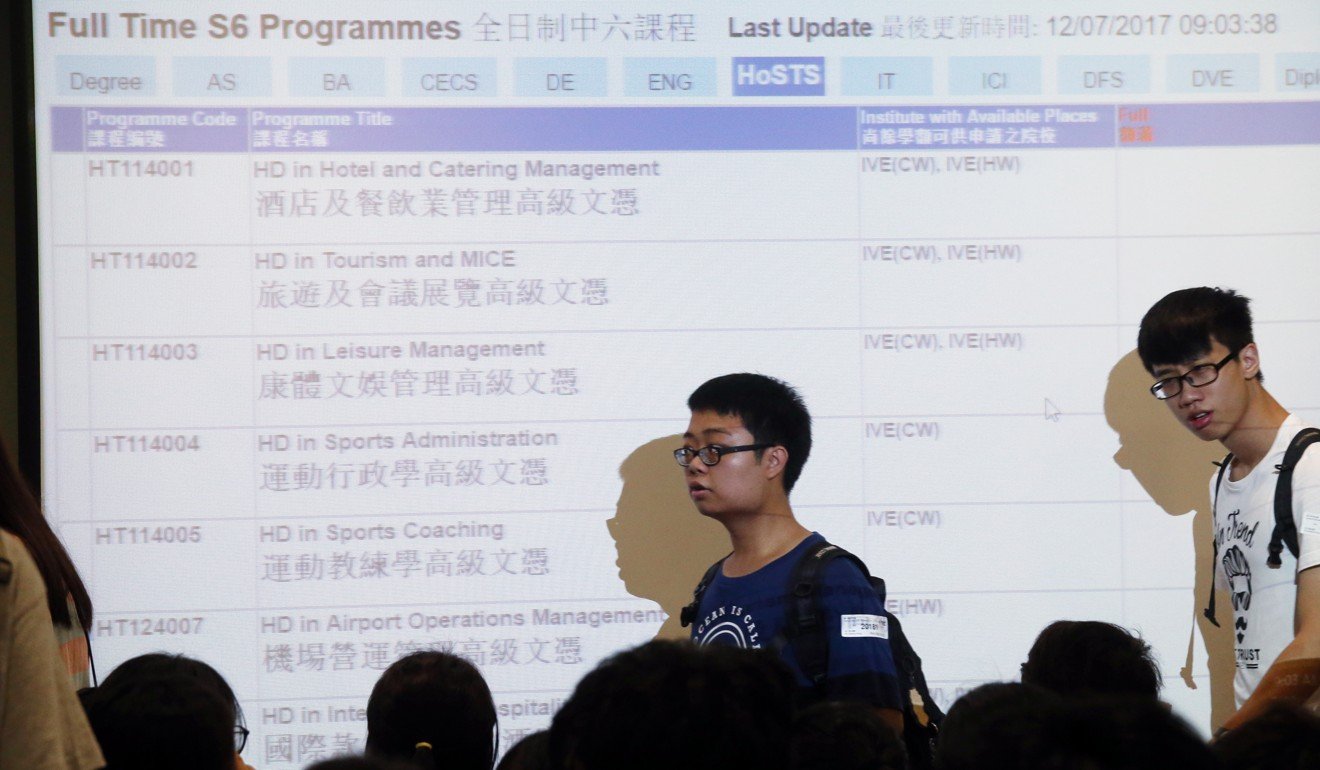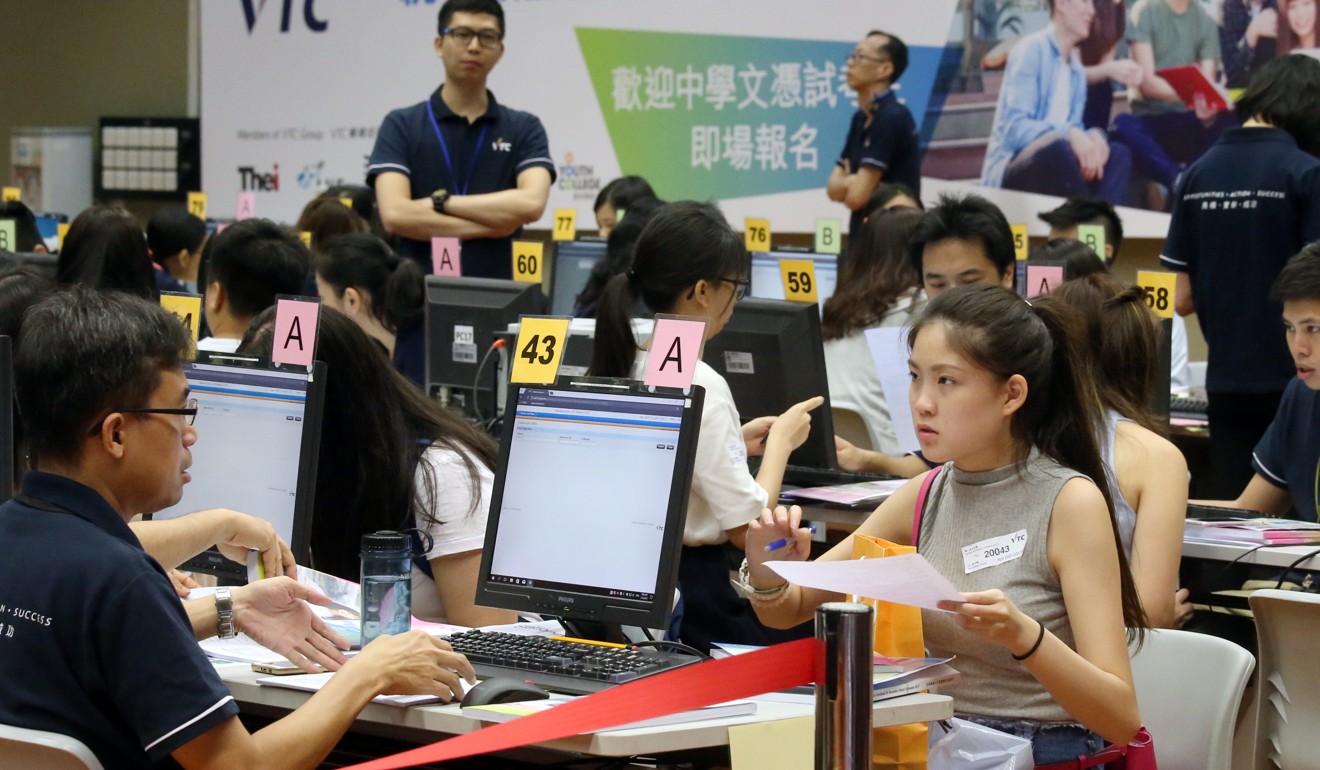
Following the money: Hong Kong self-financing degrees gain more students with new education subsidy
Meanwhile, programmes like associate degrees are losing favour as odds of using them to gain university admission remain low
High-cost, self-financing degree courses are gaining popularity among Hong Kong students who cannot secure a seat at a public university this year following the government’s new education subsidy, with more shunning controversial sub-degree programmes.

Secondary school graduate Flora Ng said she originally considered pursuing an associate degree at City University. However, she learned the chances of landing a spot at a public university’s degree programme were slim.

Students who do not fare well on the DSE could use sub-degree programmes like associate degree courses to gain admission to public universities. But the lack of a guarantee has raised questions about whether such a strategy is worthwhile.
“Someone enlightened me that there is only a one in 10 chance of [getting into the third year of degree programmes offered by the public universities] with an associate degree, so it will be a lot of competition and very tiring,” Ng said.

She has now applied for at least two self-financing degree programmes: Open University and the Technological and Higher Education Institute.
She added that the government subsidy had contributed to her decision.
Professor Chan Lung-sang, principal of HKU SPACE Community College, which offers sub-degree courses, hit out at the government for not including them in the subsidy plan.
Chan said he expected around 2,500 students to be admitted this year – about 700 fewer than the number the college anticipated receiving before the subsidy was proposed.
“I’m worried [some of our] programmes will be scrapped,” he added.
Additional reporting by Jessica Li

